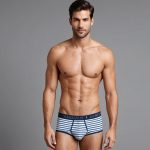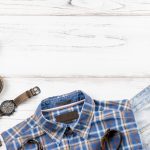Overview of Sustainable Outerwear in the UK
The rise of sustainable outerwear in the UK is reshaping the fashion industry. As consumers become more environmentally conscious, the demand for eco-friendly fashion is surging. This trend is not just a fleeting moment but a significant shift toward reducing environmental impact through thoughtful purchasing.
In today’s market, choosing sustainable outerwear goes beyond aesthetics; it’s a choice with profound ecological benefits. The UK, with its rich fashion landscape, is at the forefront of this movement, with numerous brands focusing on environmentally responsible production.
This might interest you : Discover the perfect bracelet making kit for every crafter
The growth of eco-friendly outerwear is mirrored by changes in consumer behaviour—embracing brands that align with their values. This shift encourages companies to innovate and adopt sustainable practices that set them apart. The importance of these choices cannot be overstated. Every purchase can support a more sustainable and eco-conscious industry.
Consumers’ growing awareness and decisions promote sustainability and influence brands to prioritise ethical practices. This relationship between consumer choice and sustainable fashion highlights the power individuals wield in shaping a more environmentally considerate future. Understanding this dynamic is crucial for anyone looking to make a positive impact on the planet.
In the same genre : Discover the best uk brands creating exceptional custom hats you”ll adore
Innovative Materials Used in Sustainable Outerwear
The sustainable fashion movement has sparked innovation in materials, offering an eco-friendly approach to outerwear. Leading the charge are eco-friendly materials like organic cotton and recycled polyester. These materials stand at the forefront of sustainable fabrics due to their reduced environmental impact. Organic cotton, for instance, eliminates harmful pesticides, preserving soil health. Recycled polyester, derived from plastic waste, significantly cuts down on carbon emissions.
Benefits for the Environment and Consumers
Using these materials does not only benefit the planet; consumers also reap rewards. Clothing made from sustainable fabrics is often more durable and breathable, providing long-term comfort and cost-effectiveness. Furthermore, as more UK brands adopt these materials, the accessibility and affordability of sustainable fashion increase.
Emerging Trends in Sustainable Fabric Technology
Exciting advancements are on the horizon in sustainable fabric technology. Innovations like biodegradable fibres and plant-based materials are gaining traction, offering new avenues for reducing waste. These breakthroughs are poised to revolutionise the apparel industry by combining sustainability with performance.
In conclusion, the integration of innovative, eco-friendly materials in outerwear is pivotal in addressing environmental challenges. It represents a forward-thinking approach to fashion, ensuring a greener future for both the industry and consumers.
Top Sustainable Outerwear Brands in the UK
Navigating the world of best eco-friendly brands can be overwhelming, but several notable players stand out in the sustainable fashion UK landscape. Here’s a look into three top brands that are recognised for their commitment to sustainability.
Brand One: Overview and Practices
Brand One embraces sustainability by utilising organic materials and minimising waste through innovative recycling techniques. Their commitment is reflected in their extensive use of recycled fabrics, significantly reducing their carbon footprint. Brand One’s dedication also extends to ethical labor practices, ensuring fair wages and safe working conditions for all employees.
Brand Two: Overview and Practices
Focused on reducing water consumption, Brand Two pioneers in the use of eco-friendly dyes and biodegradable textiles. This brand is celebrated for its transparency in production processes, maintaining trust through strict sustainability certifications. By promoting a circular fashion model, they encourage customers to return old apparel, fostering a zero-waste ethos.
Brand Three: Overview and Practices
With an emphasis on eco-innovation, Brand Three employs cutting-edge technology to design durable outerwear without compromising style. Their initiatives focus on closed-loop systems, effectively decreasing environmental impact. Brand Three’s progressive approach not only showcases its commitment but also sets a precedent in sustainable fashion UK.
Production Processes and Certifications
The production of sustainable outerwear in the UK involves strict adherence to ethical production standards. Ethical labor practices are foundational, ensuring that workers receive fair wages and experience safe working conditions. This ethical commitment directly influences the credibility and trustworthiness of brands.
Prominent sustainability certifications such as Global Organic Textile Standard (GOTS) and Fair Trade act as benchmarks within the eco-friendly fashion industry. These certifications verify that products meet meticulous environmental and social criteria. For consumers, these certifications are more than just labels; they symbolise a brand’s genuine dedication to sustainable practices.
Brands that acquire these certifications enhance their reputation significantly. Consumers feel assured of the credibility behind their purchase decisions, knowing these products meet rigorous standards. The presence of certifications not only promotes transparency but also guides consumers towards making informed, eco-friendly consumer choices.
In summary, both ethical labor practices and sustainability certifications are vital in shaping industry standards. They not only safeguard the welfare of those involved in production but also steer consumer preferences toward more sustainable options. By supporting certified brands, consumers contribute to the global movement towards more responsible and sustainable fashion.
Shopping Tips for Sustainable Outerwear
Navigating the world of sustainable fashion can seem daunting, but understanding a few simple strategies can significantly aid in making eco-friendly consumer choices.
To start, identification of sustainable brands is crucial. Look for recognisable sustainability certifications such as GOTS or Fair Trade labels, which ensure environmentally and ethically responsible production. Examining brand transparency about their supply chains and production processes can further authenticate their commitment to sustainability.
Mindful shopping is not only about the items you buy but also about embracing practices that reduce waste. Consider the longevity and versatility of the outerwear to minimise extended environmental impacts. Choosing items with high-quality sustainable materials ensures durability and reduces the need for frequent replacements.
Exploring second-hand and vintage markets is another effective way to engage with sustainable fashion. Such platforms not only extend the life cycle of garments but also support a zero-waste ethos. This approach is becoming increasingly popular, offering unique pieces that align with environmentally conscious choices.
Lastly, stay informed and engage with sustainable fashion communities, both online and locally. Awareness of eco-friendly fashion trends empowers consumers, offering insights and fostering a collaborative movement towards more sustainable fashion practices.
Customer Reviews and Feedback
Customer reviews of sustainable outerwear brands are pivotal, acting as a strong indicator of brand reputation and true commitment to sustainable practices. When evaluating sustainability claims, consumer experiences provide valuable insights into a brand’s adherence to their ethics and the quality of eco-friendly materials used.
Customer Experiences with Brand One
Reviews for Brand One frequently highlight the superior quality and durability of their sustainable outerwear. Many customers appreciate the brand’s use of recycled materials and praise its eco-friendly fashion innovations. Positive feedback often cites their excellent customer service, noting their commitment to transparency in sustainable practices.
Customer Experiences with Brand Two
Brand Two receives commendation for their best eco-friendly materials and water-saving processes. Consumers are drawn to their ethical stance, evidenced by high ratings of satisfaction linked to their use of sustainability certifications. Customers also value their take-back program, reinforcing Brand Two’s commitment to the circular economy.
Customer Experiences with Brand Three
Brand Three is lauded for its stylish, durable designs and innovative use of eco-friendly materials like plant-based textiles. Feedback often highlights the brand’s ethical production standards, with many appreciating their dedication to a minimal environmental footprint. This positive evaluation strengthens Brand Three’s position in sustainable fashion UK markets.
Production Processes and Certifications
In the world of sustainable outerwear, ethical production is paramount. This involves ensuring fair wages and safe working conditions for all workers involved. Such practices are foundational to building trust and credibility in the eco-friendly fashion sector.
Central to this are prominent sustainability certifications like the Global Organic Textile Standard (GOTS) and Fair Trade. These certifications are not merely decorative labels; they offer consumers assurance that products meet stringent environmental and social criteria. For those seeking eco-friendly options, these certifications act as a roadmap to conscious purchasing decisions.
- Global Organic Textile Standard (GOTS): Focuses on organic fibres, providing a credible assurance of environmentally and socially responsible practices.
- Fair Trade Certification: Ensures that products are made with fair labor practices and offer support to marginalised producers.
These benchmarks enhance a brand’s integrity, encouraging consumer trust. As consumers increasingly demand transparency, brands are motivated to maintain high ethical standards. This symbiotic relationship between ethical production and certifications underpins the thriving market for sustainable fashion. By valuing these aspects, consumers play a crucial role in fostering a more responsible fashion industry.











